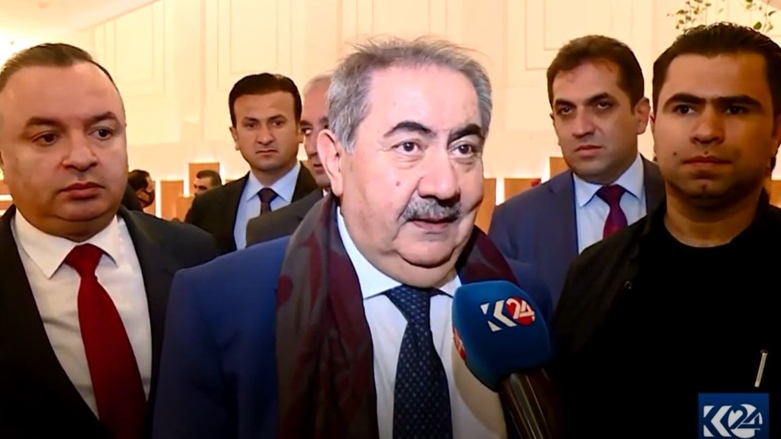Hoshyar Zebari says unrest in Baghdad result of Iraqi court rulings
“The solution is dialogue and a return to the law and constitution.”

ERBIL (Kurdistan) – Kurdistan Democratic Party (KDP) Politburo member and former Iraqi Foreign Minister Hoshyar Zebari on Saturday in a tweet blamed Iraqi Supreme Court rulings that denied him running from presidency after Iraq’s October elections for the current unrest in Baghdad.
Supporters of the Iraqi populist cleric Sadr on Saturday for the second time this weekend stormed the Iraqi parliament and other institutions.
According to Iraq's Ministry of Health, a total of 125 were injured in today's protests, including 100 civilians and 25 security forces.
The Iraqi Federal Supreme Court in February barred Zebari from running for the Iraqi presidency. At the time, Zebari called the ruling "political" and "unjust."
Read More: Hoshyar Zebari says Iraqi top court barring his presidential candidacy 'political' and 'unjust'
In February ruling, the Iraqi Supreme Court had also contentiously ruled that the Kurdistan Region's oil and gas deals were "unconstitutional."
Kurdish analysts have seen the court decisions as politicized and a way to put pressure by Iran-aligned parties on Kurds not to form a government with Shiite leader Muqtada Al-Sadr.
Since the court decisions, there has also been an increase in attacks on Kurdistan’s oil and gas infrastructure.
Following the withdrawal of populist Shiite leader Muqtada Al-Sadr in June from Iraq’s political process, the Iran-aligned Coordination Framework parties have been left alone to form the next Iraqi government almost ten months after the last parliamentary elections.
In a tweet, the former Iraqi FM Zebari said that the current violence and unrest in Baghdad is a result of these court decisions to deny the winners and kingmakers of Iraq’s October elections to form a national majority government. “You reap what you sow,” he said.
Some now fear that things could escalate between Shiite political parties and lead to violence.
Read More: UN, Germany concerned over protests and tensions in Baghdad
“The solution is dialogue and a return to the law and constitution,” he added.
“The cumulative impact of the Framework’s transgressions is wholly to blame,” Ranj Alaaldin, nonresident fellow in the Foreign Policy program at the Brookings Institution, a think tank in Washington, DC, told Kurdistan 24.
“The simplistic narrative coming from Dawa Party (a member of the Coordination Framework) circles is worrisome and does not bode well for the future.”
Saman Omar, University Lecturer and Researcher on Security Studies, told Kurdistan 24 told Kurdistan 24 that Sadr will remain politically influential, although his MPs pulled out of the parliament in June, and the Coordination Framework proposed Mohammed al-Sudani as a Iraqi Prime Minister candidate.
“It’s crystal clear the protesters that occupied the parliament were aimed to undermine nominee Mohammed al-Sudani to form a new government, which is selected by the Coordination Framework bloc, a coalition led by Iran-backed Shiite parties and their allies.”
Read More: Shiite coordination framework nominates Al-Sudani for Iraqi prime minister
Omar said he believes the current “political crisis in Iraq will lead to an open security, economic and social crisis for the long term.”
Fanar Haddad, an assistant professor at the University of Copenhagen and former advisor to the Iraqi Prime Minister, in a tweet said that Iraq’s political playbook is being rewritten.
"Sadr showing who’s boss. His unmatched street power has paralyzed Iraqi politics," he said, adding that Sadr doesn't have to worry about Iraq's security forces. "He can face rival paramilitaries."
Haddad moreover tweeted that the Iran-aligned Coordination Framework is now increasingly isolated. But he warned the situation could "spiral out of control" and is "volatile and unpredictable" now that the Coordination Work calls for counterprotests.